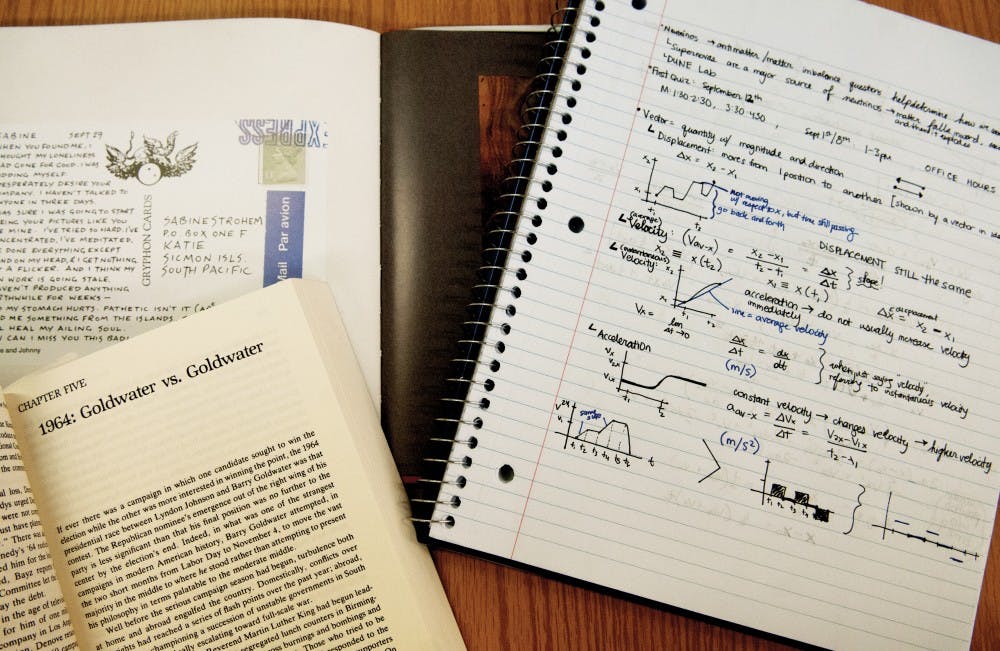
Rather than studying traditional pre-med subjects like biology or biochemistry, some students major in other disciplines, including those in the humanities.
Credit: KerCheng ChenAlthough the quintessential pre-med student is a biology major, at Penn, a variety of majors are represented by pre-med students. Everyone knows someone — a friend, a classmate, 70 percent of your freshman hall — who is on the pre-med track.
The majors of choice for pre-med students are usually biology, biochemistry or biological basis of behavior. Some students choose the “more fun” health and societies option. Students pick these majors to prepare for the subjects on the MCAT, the medical school entrance exam. And the prerequisite classes are extensive; they range from biology and chemistry to physics and mathematics, according to the course requirements for medical school on Penn’s website.
However, some students at Penn choose to major in other disciplines while still pursuing pre-med as an option. Although less common, these paths do not preclude admission to medical school as long as students fill the requirements outside of their major. In fact, on Penn’s Career Services website, it says, “medical schools do not require or even prefer a particular major.”
College junior Caroline Sands is a French major and plans to go to medical school. She said she came to Penn with her language requirement fulfilled and took her first college French class on a whim.
“The language program at Penn is really exceptional and the professors are great,” Sands said. “And the people in classes are generally really nice, so I decided it would be something I continued and it stuck.”
At first, Sands was worried that majoring in French could hinder her acceptance to a medical school, but she is no longer as concerned because she is still taking the recommended courses.
“Reactions are mostly positive,” she said about other students’ response to her choice of major. “But among the other people I have science classes with, the pre-med people are always talking about their other biology classes or biochem class and I’m not really taking a lot of the same ones as the majors.”
Sands liked that her French classes generally had a calmer atmosphere than her science classes and included students from more diverse academic backgrounds. Often Sands will have French classes with students across various majors, including urban studies and English.
Jacqueline Dougherty, a French professor at Penn, taught Sands both semesters of her freshman year in "Advanced French Grammar and Composition" and an introductory French literature course. She said that she teaches a mix of students from the humanities, STEM fields and Wharton.
“I’ve never seen any type of gap you can’t close between humanities students and non-humanities students,” Dougherty said. “I always think they end up on the same plane.”
Cass Dinh is a pre-med College sophomore studying anthropology with a concentration in medical anthropology and global health. Dinh said that she landed on her major by process of elimination.
“I was looking at the list of majors on the website and crossing off the ones I vehemently didn’t want to do,” Dinh said. “That left me with a lot of humanities majors, and I decided to go with 'anthro' because it encompasses a lot of things I really like, like sociology, psychology, some components of biology and a bit of chemistry.”
Dinh thought that pursuing a strictly science-based major would be restrictive. She enjoys the flexibility of an anthropology major.
“When it comes to being pre-med, so much of your curriculum is supposed to be centered on the sciences,” Dinh said, “but when you go to college you’re supposed to open your mind.”
It is expected for pre-med students to pick diverging courses of study, according to Dinh.
“It’s kind of like being a doctor itself,” she said. “There are doctors that deal with mental illnesses, physical illnesses, work with children or work abroad. Your major is just a way of pursuing what you’re really passionate about. We all have different conclusions that we’re all trying to reach and they all have to do with medicine.”
Dinh is thinking about joining the organization Doctors Without Borders after medical school.
“It’s not like we all love dissecting cadavers,” she added. “We all have different interests and different reasons for pursuing the things that we do.”
The Daily Pennsylvanian is an independent, student-run newspaper. Please consider making a donation to support the coverage that shapes the University. Your generosity ensures a future of strong journalism at Penn.
DonatePlease note All comments are eligible for publication in The Daily Pennsylvanian.







